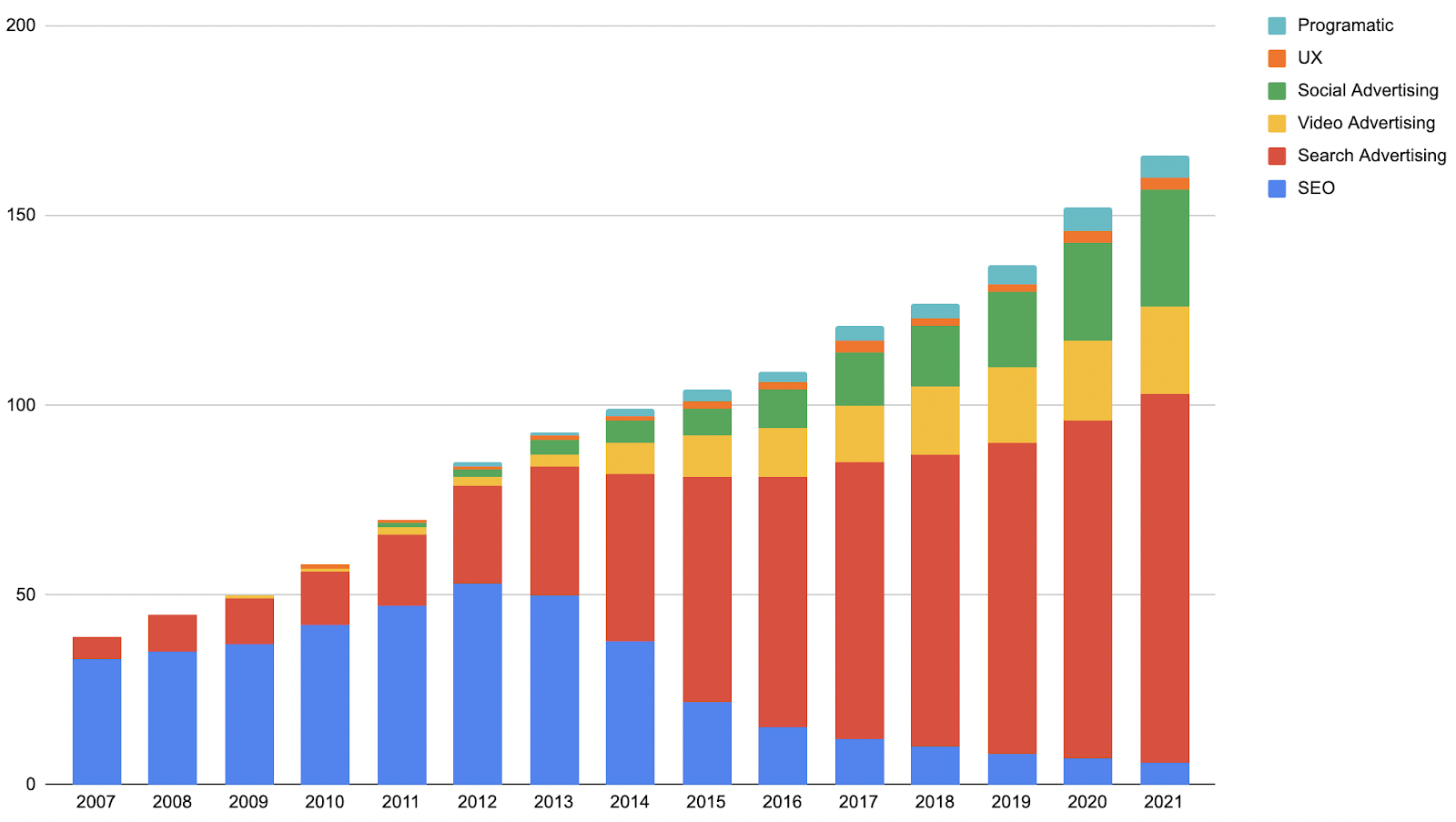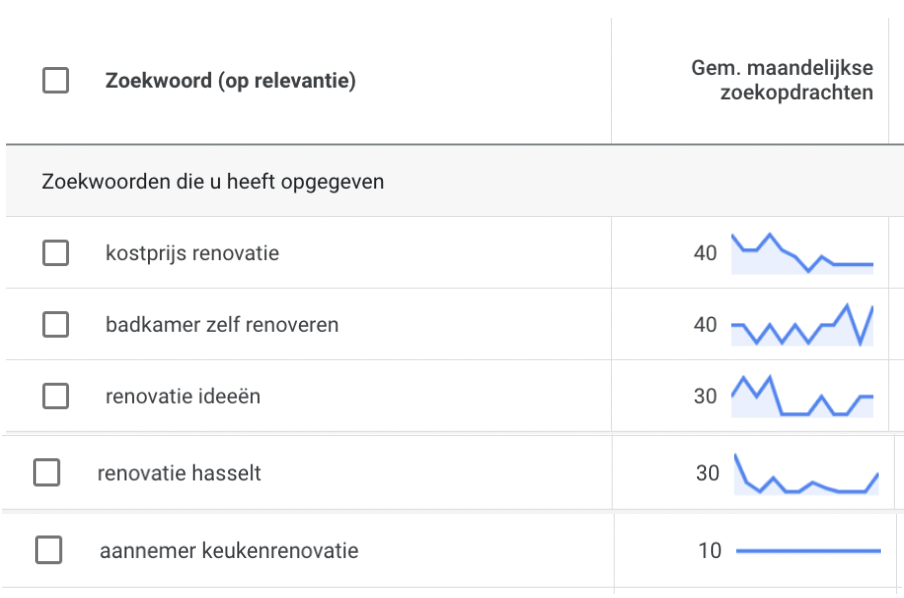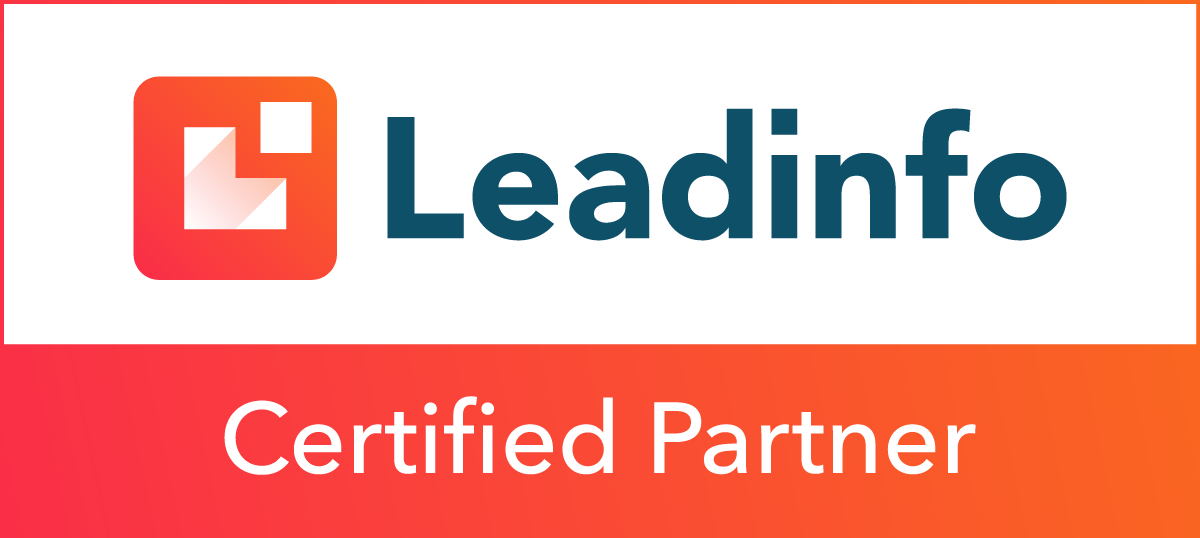Opinion piece: why it makes no sense to try and beat Google
Opinion piece by Michel De Baer, marketing specialist with an expertise in SEO.
Death to all agencies
Search Engine Optimization (SEO) has been the way to go for practically every marketer and every digital marketing agency since the founding of Google. The goal? Getting your website and pages optimized to rank high in search results with the right keywords and content. Advertising was nothing more than an afterthought. Until there was a shift in 2012. A shift that Google itself created.

SEA, a sophisticated revenue model
This opinion piece is not a critique on SEA. It's there, we can't ignore it. Even more so, SEA is such a sophisticated revenue model that we can't help but respect it.
- Google Ads is optimized in such a way that your ads are always relevant to the user/search:
- Ads always reach the right people;
- Companies only pay (to Google) when their ad is actually clicked on;
- Advertising also enables remarketing, it's the gift that keeps on giving;
- Google keeps tons of data that you can use to improve the performance of your ads.
We admit it: SEA is flawless. Going up against this rock-solid channel is a waste of time. There's just no point in trying. Unfortunately, that also means that agencies are setting all their sights on it. The result? An SEO brain drain.
The revival of SEO
A bottom-up approach is widely known in online marketing. Target what's at the bottom of the funnel, where people are looking for a specific product, supplier, service or solution. They are past the stage of inspiration and comparison. At the bottom of that funnel, that's where SEA rules. Even when advertising budgets are getting systematically higher and higher. SEA is thus changing into a strategy that is only profitable for larger companies. That's no surprise, as Google benefits from SEA and therefore prefers a big international company over a small start-up. Competing with this as a smaller company is no easy task. But not to worry. If SEA is king, then SEO is second in line to the throne.
One advantage of SEO is reliability. The majority of Internet users trust organic search results over advertisements. The reasoning is simple: if you can rank high in search engines without paying, you must be good. That not only gets you visitors, but also a nice brand lift. If that's not an extra incentive to get your SEO in order! Those who decide to engage in SEO can go two ways: the generic or the longtail direction.

Generic keywords
Generic keywords are often made up of one single word. Since they are generic, they are more likely to appear at the top of the funnel and are especially searched for when the Internet user does not yet have a specific goal in mind. It is precisely because generic keywords are so general that they attract large amounts of search volumes on a monthly basis. This is not surprising. Anyone who enters "renovation" into a search engine may be looking for inspiration, a contractor, a price offer and so on. The pie of search volumes is huge. But when every company is focusing solely on this generic keyword, the competition grows and only a few measly crumbs of pie are left for the majority of the competitors.
Local keywords
Longtail keywords, on the other hand, are much more specific, longer and have less search volume. They are mostly searched for by people at the bottom of the funnel. People who already know exactly what they want and are looking for it right this instant. This is where the most conversion potential lies. Unlike generic keywords, there are a lot more longtails. You can probably think of at least five longtails for the generic "renovation":
- price renovation
- renovate your own bathroom
- renovation ideas
- renovation in Hasselt
- kitchen renovation contractor

Longtail keywords are the crumbs of the pie. But when you gather all those crumbs, you still get a big slice. A slice of which others aren't eating, for that matter. You provide specific information, for an audience at the bottom of the funnel. As a result, you attract quality leads AND have a higher conversion rate. This means only one thing: more revenue.
Admittedly, writing content for longtail keywords is no walk in the park. In fact, if you compare all possible, relevant longtails, the limited search volumes and the effort a copywriter puts into it, you probably come to the conclusion that it is not worth the time and money (for the copywriter you have to pay). Although that's understandable, it's a bit of a shame at the same time. After all, rankings are just up for grabs. So you either abandon the longtail story or you look for a solution. And Tailpage offers just such that: a solution.
Automating longtail content with Tailpage
Tailpage is a software that produces content in bulk. With us, in bulk does not mean "loss of quality," on the contrary. Every text that rolls out of our machine is unique and indistinguishable from a humanly written text. Since we let a software do all the work, we are able to provide large quantities of longtail content.
Our focus is local SEO. This means that we create landing pages for a keyword in combination with a location. Car dealer in Waregem, carpenter in Hillegem or advertising agency in Antwerp, for example. Does your company have a working area (local, regional or national) in which you want to score, but you’re not comfortable providing authentic, unique texts for every location in that area without falling into duplicate content? One address: Tailpage. A nice bonus: although our focus is SEO, our local landing pages are also perfect for SEA purposes. We admit that even Tailpage can't beat Google. But we are the next best thing.
Download our white paper
The basics of local SEO
Every SEO strategy strives to raise a company's online visibility in search engines among its intended audience. Local SEO takes this one step further. What does local SEO focus on and how do you set up a local SEO strategy yourself? Find out in this white paper.



